| 2003 |

|
YEAR BOOK |
HIGHER EDUCATION AUTHORITY - AN T DAR`S UM AR D O IDEACHAS
|
Irish research landscape transformed
|
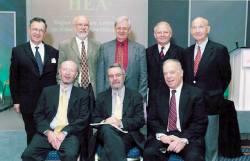
Introduction
The Irish research landscape has undergone a massive transformation in the last four years. A major agent of change in this area has been the Programme for Research in Third Level Institutions (PRTLI) which funds the establishment of world class facilities in our higher education institutions. The funding has been provided under the National Development Plan 2000-2006.
Impact of PRTLI
The impact of the PRTLI was highlighted at a major Conference and Exhibition organised by the HEA in late 2002 on the theme Creating the Innovation Society. The event signalled in a very tangible way the difference the Programme has made to enhancing the Irish research base. Over 300 people attended the conference, including representatives from industry, the public sector and the third level institutions. The Exhibition event was the first of its kind in Ireland and marked over three years of funding by the PRTLI.
Among those exhibiting and participating in the event were the 15 higher education institutions, including six institutes of technology which have received funding under the Programme. The programme has created to date 17 Research Centres and one Library facility, with a further six centres currently under construction. Those completed (in chronological order) include:
|
� RCSI
_
Institute of Biopharmaceutical Sciences
� UCD _ Institute for the Study of Social Change � TCD _ Institute for Advanced Material Science � CIT _ Biotechnology and Environmental Science Centre � TCD _ Ussher Library � NUIG _ Centre for the Study of Human Settlement and Historical Change � UCC _ The National Nanofabrication Facility � UCC _ Biosciences Institute � UL _ Materials and Surface Science Institute � DCU _ National Centre for Plasma Science and Technology � DCU _ Research Institute in Networks and Communications Engineering � DCU _ National Centre for Sensor Research � UCD _ Urban Institute � NUIM _ Institute of Immunology � UCD _ Conway Institute for Biomolecular and Biomedical Research � UCD/TCD _ Dublin Molecular Medicine Centre � NUIG _ Environmental Change Institute (ECI) � NUIG _ National Centre for Biomedical Engineering Science |
A number of further centres are close to completion - including the National Institute for Regional and Spatial Analysis (NUIM). A full list of all programmes funded is available on the HEA website - www.hea.ie - and, as can be seen, the PRTLI funds institutional strategic development in all discipline areas.
This massive infrastructure that is now in place not only provides facilities for PRTLI funded research programmes, but also for research programmes and personnel funded by other national and international sources. A key objective of the programme to facilitate the strategic development of research capabilities in Irish third level institutions is thus being achieved. Many of these centres are profiling their work in this edition of The Irish Scientist Year Book and you are encouraged to take a look!
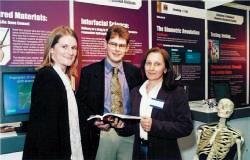
People Focus - 800 Researchers
But PRTLI is about more than developing institutional competence. It is about enabling people to realise their potential by assisting talented Irish graduates to pursue research careers in this country. In this respect, the Programme has had an immediate and dramatic success. In the region of 800 researchers have been funded through the PRTLI to date - approximately two thirds of these are postgraduate researchers, with one third post-doctoral researchers.
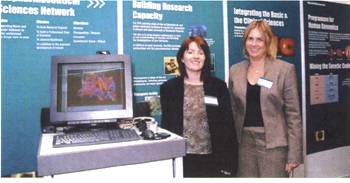
Collaboration
The nurturing of inter-institutional collaboration is one of the major objectives of the PRTLI and in this area also substantial progress is being made. Already 40 new inter-institutional programmes/initiatives have been established.
An example of the type of broad programmatic collaboration that has developed between institutions is the co-operation in environment research taking place between the PRTLI funded:
��Environmental Research Institute at UCC
� Environmental Change Institute at NUIG
� Centre for Sustainability at IT Sligo
and a total of eight other institutions contributing their expertise and skills to these programmes.
Another example of this type of collaboration is in the Biomedical area. The Dublin Molecular Medicine Centre (DMMC) was established under Cycle 2 of PRTLI as a collaboration between TCD's Institute for Molecular Medicine and UCD's Conway Institute for Biomedical and Biomolecular Research. This co-operation was further enhanced with the formation of the Programme for Human Genomics - a collaboration between the DMMC and the Biopharmaceutical Sciences Network at the Royal College of Surgeons. The links between the institutions were strengthened with the establishment in April 2002 of the DMMC as a legal entity.
Developments such as these are going to be critical for the establishment of critical mass in key areas for the economy and society.
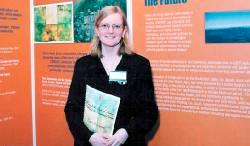
Research and Teaching/Learning Outputs
There has been a 250% increase over the last three years in the number of articles published in peer reviewed journals arising from PRTLI funded programmes, and sixty-two new and expanded research programmes have been established. Outputs range from exciting discoveries and knowledge, to publication of articles and books, to transfer and translation of outputs into patents or start ups, to key contributions to policy debate and formulation.
PRTLI is distinct in that it specifically has an objective to strengthen the link between teaching and research so as to enhance the education of all graduates. A number of new academic courses have been initiated, as have numerous new modules and practicals for existing courses.
PRTLI is thus, through provision of capital infrastructure and enhancement of the education of researchers, making a vital contribution to the development of the knowledge economy and innovation society. A detailed independent Impact Assessment for PRTLI that is currently underway will be reporting further in 2004.
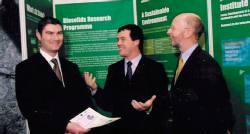
HEA: Providing Research Support Through a Variety of Mechanisms
While the PRTLI is one of the largest sources of funds for research in this country, the Higher Education Authority actively supports research through other mechanisms. As part of the HEA's core budget to the institutions, funding is provided for research. In addition, the HEA plays a major role in the management of initiatives like the HEA/MLE Research collaboration, which provides funding encouraging collaboration between Irish Third Level Institutions and Media Lab Europe (Ltd). This programme is managed by the HEA on behalf of the Department of Communications, Marine and Natural Resources. HEA/MLE Open Days are held annually to showcase the research being conducted under this programme - whether it is research on the development of educational tools for people with learning difficulties or development of video games for treatment of people with brain injuries.
A New Research Initiative in 2003: The North South Research Programme
The North South Research Programme was launched in March 2003 by the HEA, on behalf of the Department of Education and Science. Under this programme, researchers in higher education institutions north and south of the border applied for research support. There were two strands to the Programme - Strand 1 focused on development of quality collaborations, whilst Strand 2 focused on utilizing research and development to contribute to peace and reconciliation. A key criteria of the programme is that there must be a research partner North and South. Collaborative research and development across all disciplines between third level institutions on the island is being supported and the results of the first competition were announced at the end of the summer 2003.
Research Expertise Boost
It is envisaged that the programme will play a significant role in deepening research expertise on the island, which will be of vital assistance in the establishment of the island as a research hub. It is hoped that the programme can build on existing research partnerships forged through PRTLI, and also create new ones. It is also planned that the programme will assist the peace process with proposals having to demonstrate how they can contribute to mutual understanding of cultural diversities and aid the process of reconciliation on the island.
People, Research and the Innovation Society
The HEA is convinced that this country must build competitive advantage based on the skills and knowledge of the Irish people as the primary sustainable long-term resources available to the economy and society. Through its activities the HEA continues to play a key transforming role.
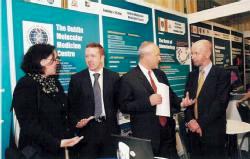
Contact: Dr. Eucharia Meehan, Higher Education Authority,
Third Floor, Marine House, Clanwilliam Court, Dublin 2; Tel: 01-661-2748; Fax: 01-661-0492;
E-mail: [email protected] ; Web: www.hea.ie